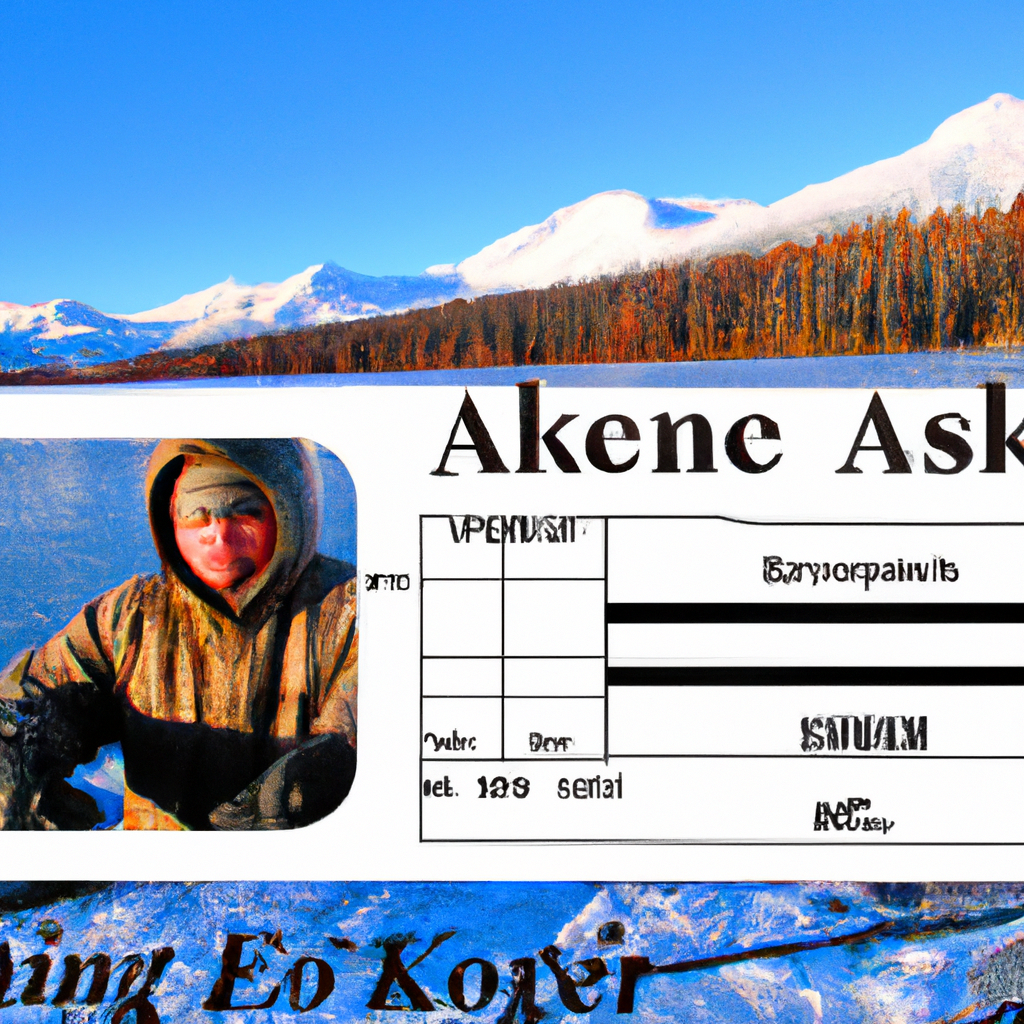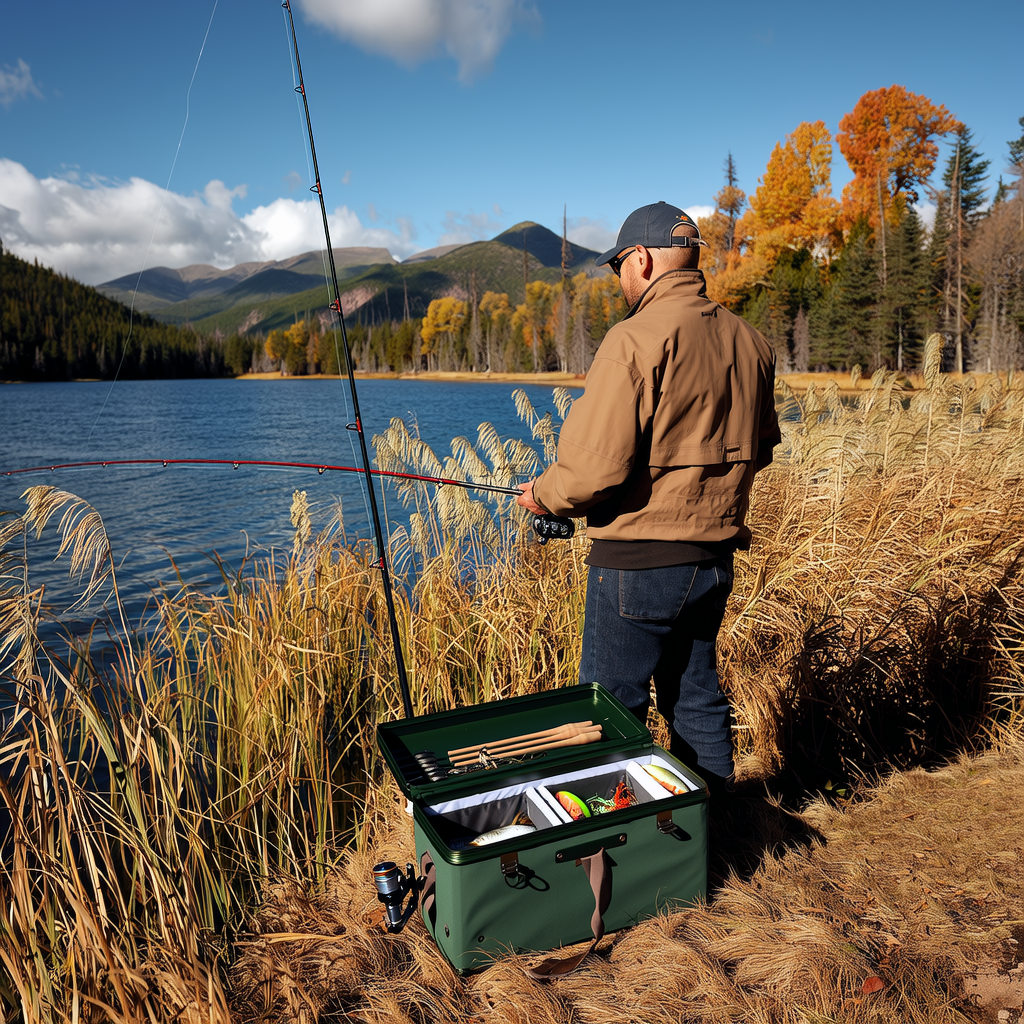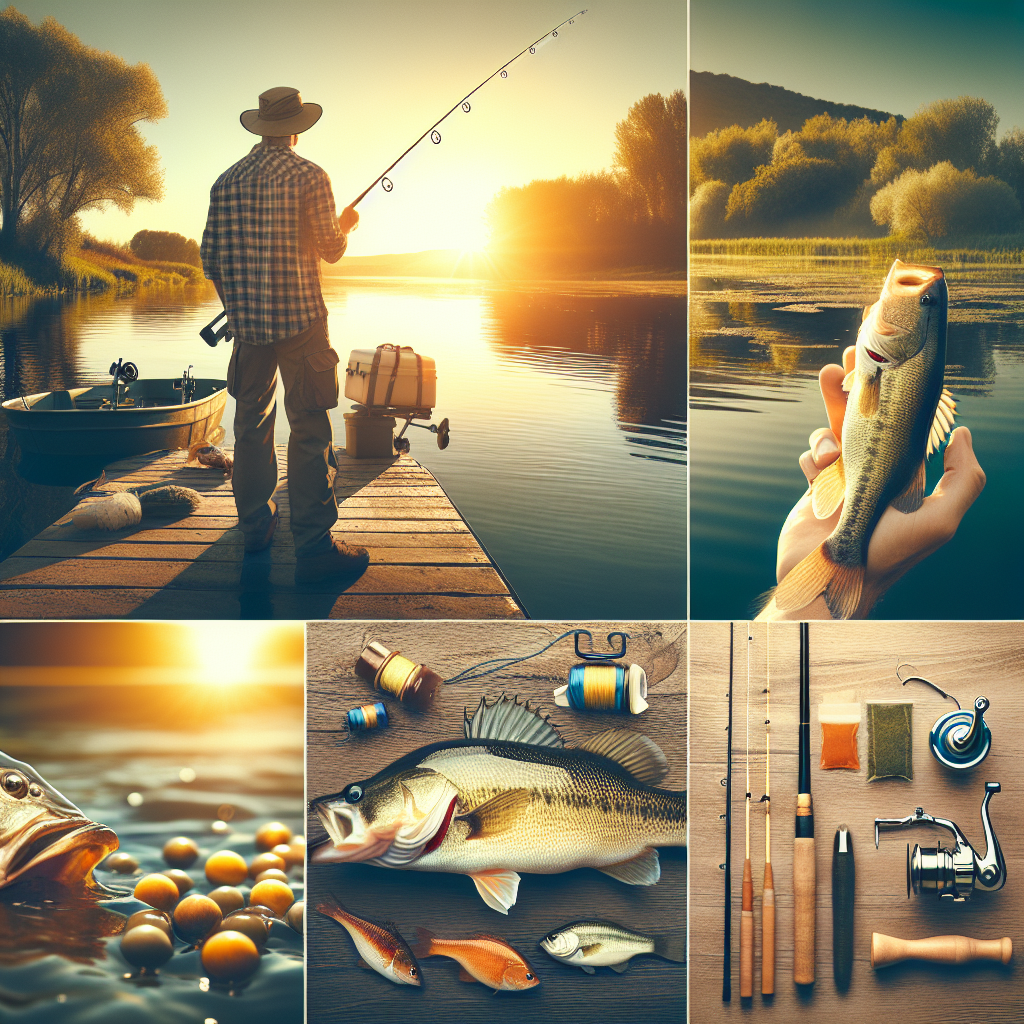You will need a fishing permit if you plan to fish in Alaska. This document is the official permit for you to fish in Alaska’s abundant waters. It also comes with a list of rules and regulations to follow. This article will cover everything you need about Alaska fishing licenses, including the types of licenses, fees, requirements and more.
Why Do You Need a Fishing License In Alaska?
Let’s understand why you might need a fishing license in Alaska before we get into the details. Alaska is known for the stunning natural beauty of its wildlife, especially its fish species. You can catch a variety of fish here, including salmons, halibuts, trouts, and many more. To ensure that the fish populations are healthy and sustainable, government regulations regulate fishing activities.
Types of fishing licenses in Alaska
You have a variety of options when it comes to Alaska fishing licenses. The type of fishing license you require depends on a number of factors, including your age, where you live, and what kind of fish you are pursuing. Here are some of the most common fishing licenses:
Resident Sport Fishing Licence
If you live in Alaska, you can obtain a resident sport-fishing license. This license allows you fish for any saltwater or freshwater species in Alaska.
Non-Resident Sport Fishery License
If you are not a resident in Alaska, you can obtain a non-resident fishing license. This license allows you to fish in any state waters for any species.
King Salmon Stamp
If you plan to fish for kings in Alaska, you will need to purchase an Alaska fishing license and a kings salmon stamp. Both residents and non-residents are required to purchase this stamp.
Other Special Permits & Stamps
Depending on what type of fishing you plan to do, you may require additional permits and stamps. If you plan to fish halibut, or shellfish for example, you will need to purchase a special permit.
Alaska Fishing License Fees
The fees for fishing permits in Alaska are dependent on the type of permit you need. Here are some of the current fees for the most common licenses.
Resident Sport Fishing Licence
The cost of a resident’s sport fishing license for the whole year is $29
Non-Resident Sport Fishery License
The cost of a non-resident fishing license depends on the length of the license. The fee for a one-day fishing license is $25. The fee for a three-day licence is $45. The fee for a seven-day licence is $70. An annual license costs $145.
King Salmon Stamp
The cost of a king-salmon stamp is $15, for both residents and nonresidents.
Alaska Fishing License Requirements
You must meet certain requirements to obtain a fishing permit in Alaska. Here are the most essential:
Age
In Alaska, you must be 16 years old in order to purchase a license. If you are under 16, you do not need a fishing license. However, you must follow certain rules and regulations about safety and fishing.
Identification
To obtain a fishing permit in Alaska, you will need to present a valid form or identification, such a driver’s license or passport. If you are applying for a resident’s license, you will also need to show proof of your residency.
Fishing Education
If you are a first time angler in Alaska you may be required to complete a course on fishing before you can obtain a license. This course covers topics like fishing methods, safety measures, and regulations.
Where to get a fishing license in Alaska
There are a few ways to obtain a fishing permit in Alaska. Here are the most common options.
Online Shopping
You can buy a fishing permit online via the Alaska Department of Fish and Game website. This is the easiest option because you can do it at home.
Local Vendors
You can also buy a fishing permit from local vendors, such as sporting good stores, gas stations and convenience stores. You can find a list of authorized sellers on the Alaska Department of Fish and Game website.
Department of Fish and Game Offices
You can also purchase a fishing permit in person at any of Alaska Department of Fish and Game’s offices located across the state.
Alaska Fishing Regulations
In addition to obtaining a license, you must also follow the various regulations and guidelines that apply when fishing in Alaska. These regulations are intended to protect the environment and ensure the sustainability of fish populations over the long term. Some of the most significant regulations include:
Bag Limits
Bag limits are set for each type of fish. This is the maximum amount of fish that you can catch in a day or a season. Bag limits can vary depending on species, location and time of the year.
Size Limits
Some fish species have a size limit, meaning that you cannot keep fish smaller or bigger than a certain weight. These size limits can vary depending on species and location.
Equipment Restrictions
Alaska also has restrictions on the equipment you can use to fish. Some areas, for example, prohibit the use certain types of baits or lures, while other require the use barbless hooks.
Commercial Fishing Regulations
If you plan on commercial fishing in Alaska you will need to adhere to stricter regulations, and obtain additional permits.
Fishing in Alaska: Benefits and Benefits
Despite the restrictions and regulations, fishing in Alaska has many benefits. Here are a few of the best reasons to fish Alaska:
Abundance of fish
Alaska has some of the most diverse and largest fish populations in the entire world. Alaska’s waters are home to a wide variety of fish.
Stunning Scenery
Alaska is renowned for its stunning natural beauty. From its towering mountain ranges to its sparkling streams of freshwater, Alaska has it all. This pristine environment makes fishing in Alaska a unique experience.
Cultural Experience
Since thousands of years, fishing has been an important part of Alaskan culture. This activity will allow you to connect with Alaska’s rich history and learn more about its indigenous cultures.
Relaxation and Recreation
Fishing can be a great way to relax and decompress. Fishing is a great way to escape the stress of everyday life and enjoy the outdoors.
Conclusion
A fishing license is required if you plan to fish in Alaska. This document is your ticket for some of the best angling in the world, and it allows you to contribute towards the conservation efforts of the state. Follow the rules and regulations to enjoy the many benefits that fishing in Alaska has to offer, whether you are a resident or not.




